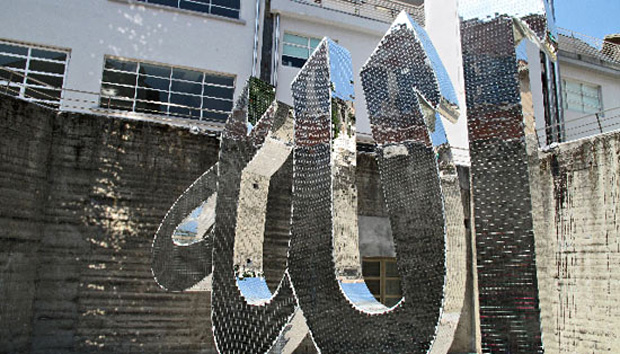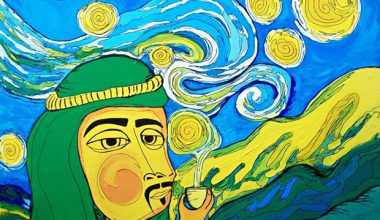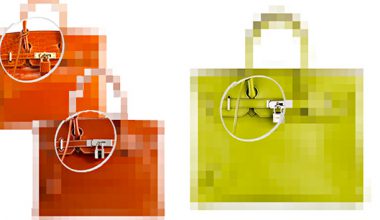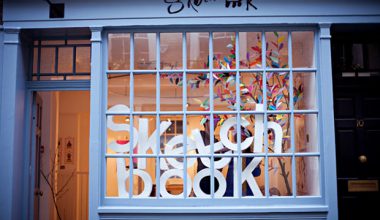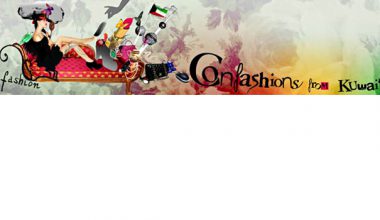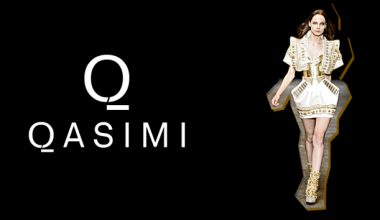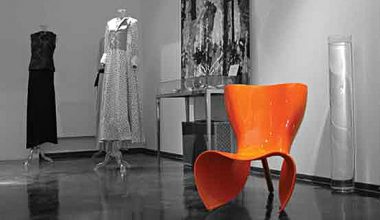

For starters, Zena el Khalil’s work leaps out to you. Talks to you, really talks to you, drawing you in conversation with the vitality of her work and the startling, remarkable way she uses such a varied range of media.
Born in England but Lebanese by birth, Zena, currently based in Beirut, received her Masters of Fine Arts degree from the School of Visual Arts, New York. Since then, she has worked with painting, mixed media, installation, collage, writing, and performance, deriving inspiration from the city that she inhabits and which clearly inhabits her.
Zena's work has been exhibited in Lebanon, Europe, Africa, Australia, and the Middle East. She also was the author of a widely read blog, Beirut Update(http://beirutupdate.blogspot.com/), which garnered her much international attention and is also the author of a novel-memoir, Beirut, I Love You.
Khaleejesque spoke to Zena to find out more about what propels this artist with a unique voice to create what she does:
Khaleejesque Team: You work with an extremely varied range of media: installation, mixed media, paintings, writing, and performance. Does the concept of a particular project dictate what media it is that you will employ or is it an organic process?
Zeina El Khalil: I like to be flexible with my mediums because often the story behind the work dictates the materials. I am comfortable working in the quiet and calm of my studio alone for hours, or on the streets of Beirut. Art is life, my medium is life; and it manifests in different forms.
KT: Can you share with us your sources of inspiration and any inspirational personalities that have been seminal influences in your work?
ZK: My strongest influence is the city of Beirut itself. Most of my work is a direct reflection of the time and space I live in. It is autobiographical. It is a testament to the ups and down of our chaotic city. I grew up in Lagos and that city too contributed to the method of my work: colorful, layered and spontaneous.
One of the people to have hugely influenced me is my mother, May El Khalil, who is the president of the Beirut International Marathon. She is the most determined and strong willed person I know! A few years ago, when training to run the Dubai marathon, she suffered a serious accident and was in and out of hospital for years. When still in the intensive care unit, she decided that if she could never run again, she would make sure that all of Lebanon did. Beirut Marathon was created from that moment and till today, this annual race has helped bring together our country through a message of peace and unity, even in the worst of times in our recent political history. Her courage is a huge source of inspiration for me and a true testament of the positive things that Arab women are capable of doing.
I also hold Frida Kahlo very close to my heart.

KT: Installation art necessitates the engagement of the spectator with the subject on hand in order to work to a great extent. Do you find yourself participating and interacting with the installation as a spectator, rather than an artist and perceiving it in a different fashion altogether?
ZK: Everything is connected and indeed, once dialogue begins, the artwork changes. But I never believe that I’m in total control of everything I make. The world has a beautiful subliminal power that I allow to naturally manifest into the work by taking a few steps back. I don’t believe we are alone in this universe, let alone, alone in this world. So, I am constantly both a spectator and an artist, even during the process of making my work.
KT: The roots of your work run deep into the political and war dynamics that have been occurring within and radically coloring the country; personal inevitably is the political. What role does art, more specifically your art, play in determining and shaping your country's contemporary situation and history?
ZK: Art is a need. A necessity. I have chosen to use it as a survival tool. The more I produce, the stronger I feel. The braver I feel about living in Beirut. I don’t see a separation between art and life, nor art and activism. I believe that we all have a responsibility towards each other. I am someone’s sister as well as neighbor. I need to do my part. I need to tap into my emotions in order to reach yours. It brings us closer together. It breaks down boundaries and removes fear. It helps us understand how similar we are to each other and brings love into our hearts and minds. I am not interested in creating a cerebral statement, the news and media already take care of that. I want to create an emotional revolution, where love and compassion rule.
KT: There is an abundance of the color pink and usage of embellishments, objects, images and child-like and feminized references in your works that deal with issues of great emotional, political, and social resonance. Tell us a bit about what appears to be a dichotomy between tone and subject.
ZK: I take that which is rooted in violence and then I de-contextualize it so that it no longer exists. The pink objects and embellishments are my weapons of positive energy. I take aim and shoot them at objects of war, ideas of fear, techniques of alienation. I want to negate the negative. I would not say that my work is “feminized”; it is simply an extension of myself… and yes, I happen to be a woman. I don’t believe the word “feminized” exists; our present world is very complex and layered, with a lot of crossing over. It would be unfair to narrow things down to the word “feminized”.

KT: Layering various elements is a big part of your work; photocopied images, photographs, drawings, items like faux flowers and baubles. What is the significance of the 'layer' to you?
ZK: The objects of violence hold a lot of power. It takes a lot of work to sort them out. The more layers I use, the safer the world becomes. I want to suffocate fear through love.
KT: Could you tell us about your experiences of your performance work, both in terms of performance as well as the engagement with and responses of the audience/spectators? In The Pink Bride (an ongoing performance), you are technically participating in the International Marathon yet you are also performing, running through the mob to find a husband. How radically different was it to your participation in and creation of an artistic work? How did you feel about directly interfacing with an audience (whose participation itself is contributing towards your performance)?
ZK: Gandhi says, “Be the change you wish to see in this world.” I think that the performances I do are the strongest ways to make real change because it’s a one to one interaction. It’s a straight dialogue with another person. I just completed the 8th Beirut International Marathon on Nov. 7, 2010. While walking, I started up a conversation with a young woman who asked why I was dressed this way. I answered it was to promote love and peace. She then asked me why I don’t publicize what I do with the media. I told her that it was not important; what was important was the conversation we were presently having and that watching me on TV would not have the same impact as the real life hug I then gave her. One of the most beautiful experiences in the world is to give a hug to a random stranger.
The other work I do is just as important. I need to feel flexible to move in different directions because that is how life is. Everything I do is connected and needs to happen.

KT: Your blog became a pulsing emotional hotline into the heart of the Beirut conflict and you have also published a memoir, Beirut, I Love You. Has writing been a new endeavor or has it always simultaneously worked in conjunction with your work?
ZK: Writing is incredible because it is direct and eternal. However, I would like to say once again that it’s just another tool to help celebrate life. I have always written because I have always had a need to transmit certain energies and thoughts. I have years and years worth of journals, sketchbooks, and diaries. I think I was always aware that I needed to record and witness the life around me.
KT: Lastly, what keeps you going? What is it that you seek to accomplish or fulfill through the creation of work? What motivates you to begin another project?
ZK: I want to keep creating things that are meaningful and engaging. Art should be for everyone and not an elite circle that hides out in gallery openings and museums. It should inspire and remind people that we are still alive and connected. It is a deep need and a gift I am grateful for. I know that whatever I do in my life will be insignificant; yet, I also know that it’s important that I do it. Our fingerprints don’t fade from the lives of people we touch.
For more information on Zena el Khalil's work, visit www.ziggydoodle.com
By: Priyanka Sacheti


